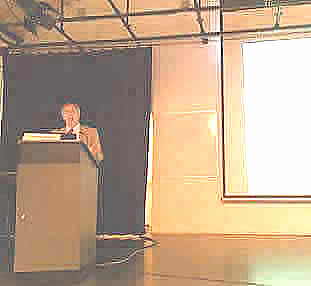| 28 April a newspaper reported:
The Greek crisis makes one thing clear: if the Economic and Monetary Union will survive, crisis prevention should be strengthened. 'When fire broke out, we had no fire-brigade. We don't need a fire-brigade, European leaders said, because we don't like fire. But a fire-brigade is urgently necessary, otherwise we are in great trouble." Can the euro survive without an integrated economic and political policy?
While the rescue operation is in progress, one is working on proposals to tighten up supervision on the Economic and Monetary Union.
Euro countries have to send in their budget-sovereignty. As soon as a country let run out of hand their budgets and it is damaging the SGP, intervention should be powerful. For weakened monetary union builds up a threat for the economic growth and with that the social securities.
The crisis have worsened public financing dramatically. Debts are exploded and, although there are differences, that puts pressure on social systems. Countries in the north like the Netherlands and Sweden did get through the crisis better.
|
|
They carried out reforms, they have a better economic performance qua solvability and efficiency. South European countries are shifting their problems to the next generation.
Before the crisis, they failed already to reform and their debts were already high.
The crisis shows the fragile situation in countries such as Greece. In the mean time, globalisation is in progress and we have to do with strong economic competitors like China, India and Brasil. Through this, Europe is forced to adopt and strengthen its economy still faster.
We cannot afford ourselves weakening of the EMU.
The SGP has failed. The pact should have prevented the Greek financial crisis. But it did not work. The Greek problems were already known for a year, but nothing happened. Supervision on observe of regulation for the euro is too weak. More specific: the Greek crisis broke out because of the fact that in 2005 the SGP was being eased.
In stead of strengthening supervision on observe the euro-criteria concerning debts, deficits and inflation, Germany and France would not follow the euro-obligations, because deficits went beyond norms and of financial penalties. |
|
As Presidency of the EU, Italy turned the situation in such a manner, by which Berlin and Paris
were not fined. The European Commission did not want a conflict and so, nothing happened. Smaller countries were furious and since then the motto is 'live and let live'. Sour is that Greece has taken advantage of it.
If you are monetary unified, the solution of the crisis desires also some solidarity. Besides the IMF-loans, all euro-countries should support their part. The present rescue package should prevent a failure of Greece, otherwise the problems will reflect as a boomerang on banks, which have lend to the Greek.
The crisis comes on bad time, because European countries are working on their recovery.
Supervision with teeth is necessary. Political leaders should be able to demand policy- adaptions. A view of the European Commission is to get insight in budgets before they are approved. Germany, however has a key position in this.
Germans feel themselves deceived. Exactly that happens of what they were afraid for: to have to suffer for the irresponsible behaviour of other members of the euro-group. Frustrations are hughe, because it is asked ti give aid to a country that took advantage of it, while Germany tightened its belt, due to the high costst of the unification.
|
|
Europe has advantage of a monetary union. Although the credit crisis was worse, the euro survived 9/11 and the exchange internet crash.
Next months it will become a very difficult debate in Brussels to improve the EMU. But politics cannot escape tightening of the rule of the euro-game.
The euro is a currency without a country, without political policy. That has always been its weakness. If crisis prevention will be tightened and the Council call countries which makes a financial mass to order, a step is made to more political integration. For countries give up a part of their sovereignty. That does not mean that there should come a a kind of economic government. The European Central Bank should stay independent.
If political will is not present, then a gloomy scenario will occur of slow growth, more rising debts and higher taxes. Europe will experience a downward vicious circle in an era wherein world-economy is on a turning point and shifting to Asia (In October 2010 France and Germany agreed that the economic governance needs to be reinforced).
If Europe's economy will not become stronger, we become poor. |
